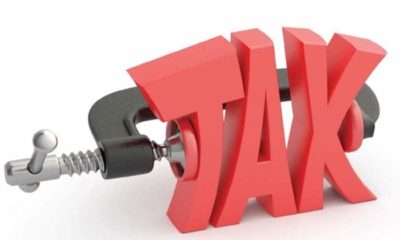- FIRS To Generate N1.3 Trillion from VAT on Online Transactions
The Federal Inland Revenue Services (FIRS) has said that it may generate a total of about N1.3 trillion worth of revenue in one quarter, based on an estimation of 5 percent Value Added Tax (VAT), imposed on both local and international online transactions.
Experts, however, warned that this imposition will hurt e-commerce growth in the country.
FIRS Executive Chairman, Babatunde Fowler, at the African Tax Administration Forum (ATAF) Technical Workshop on VAT held yesterday in Abuja, also said that the imposition will become operational from January 2020.
This move was made to enhance revenue regeneration considering the decrease in oil revenue in the country.
Analysis by the Nigerian Interbank Settlement System (NIBSS) revealed that within a space of three months; January to March 2019, online transactions in the country was worth N27.649 trillion; with NIBSS Settlement Series at N1.2 trillion, Point of Sales (POS) at N633.8 billion, Automated Teller Machines (ATM) at N1.5 trillion, Mobile money at N810.1 billion and Web-payment at N107.6 billion.
Hence, all things being equal, a 5 per cent imposition on transaction through these channels would bring in a total of N1.382 trillion in three months, based on these figures. The FIRS has however said that caution must be taken in projecting likely earnings as it has not concluded what percentage of VAT will be charged on online transactions.
He said: “We have thrown it out to Nigerians. Effective from January 2020, we will ask banks to charge VAT on online transactions, both domestic and international.
“VAT remains the cash cow in most African countries, with an average VAT-to-total tax revenue rate of 31 per cent. This is higher than the Organisation for Economic Cooperation and Development’s average of 20 per cent.
“This statistics, therefore, is a validation of the need for us to streamline the administration of this tax with the full knowledge of its potential contributions to national budgets.
“It is, however, also bearing in mind the rights of our taxpayers.”
The Chairman also wondered why there is a large disparity between VAT revenue generated in Senegal and that of Nigeria. He added that African countries should develop a keen interest in the taxation of digital goods and services to boost revenue generation considering the increasing preference of digital trade.
He said VAT has a high tendency of boosting revenue in Nigeria. It would be recalled that the National Bureau of Statistics (NBS), reported that the Federal Government through the Federal Inland Revenue (FIRS) generated N311.94 billion in VAT in the second quarter of the year.
The Executive Secretary of ATAF, Mr. Logan Wort, also said the ATAF VAT Technical Committee would keep an eye on developments in the construction sector and that it has already initiated the process of implementing procedures on VAT issues arising from the sector.
He adds, “While construction is that of tangibility, the rise on the intangibles is common across the globe and indeed in Africa. Beset against the fourth industrial revolution, more and more, we realise that the old way of going to a shop to buy a product may not be the most effective way when the same product is available online, and at times, cheaper”.
In other news, the Chartered Institute of Taxation of Nigeria has thrown its weight behind FIRS plans to introduce 5 per cent VAT on online transactions.

 Naira4 weeks ago
Naira4 weeks ago
 Naira4 weeks ago
Naira4 weeks ago


 Naira4 weeks ago
Naira4 weeks ago




 Naira3 weeks ago
Naira3 weeks ago
 Commodities4 weeks ago
Commodities4 weeks ago


 News4 weeks ago
News4 weeks ago


 Banking Sector4 weeks ago
Banking Sector4 weeks ago
 Travel4 weeks ago
Travel4 weeks ago
























